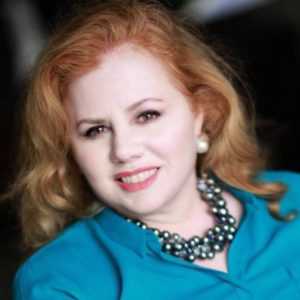Cookies & Capitalism


For millions of women, their start in business goes back to selling Girl Scout Cookies. Girl Scout alumnae in business fields say selling cookies helped them develop such business-critical skills as money management, goal setting, and public speaking. Famous former Scouts include Virginia Rometty, Susan Wojcicki, Martha Stewart, and Vera Wang.


In 2015 more than half (52%) of women in business were Girl Scouts, as were 56% of businesswomen between the ages of 45 and 64. Some two-thirds of female members of Congress were Scouts, as were an estimated 80% of women business owners.
The Girl Scouts count IBM chairman and CEO Virginia Rometty, YouTube CEO Susan Wojcicki, entrepreneur Martha Stewart, Mrs. Fields cookie founder Debbi Fields, designers Vera Wang and Cynthia Rowley, former Secretaries of State Condoleezza Rice, Madeleine Albright, and Hillary Clinton, and nonprofit leaders Carol Bellamy, executive director of Unicef, and Elizabeth Dole, former president of the American Red Cross (and a former United States Senator and Cabinet member) among its famous female entrepreneurs and successful alumnae. Hollywood trailblazer Lucille Ball (born one year before the Girl Scouts was founded in 1912), was a member of the fledgling organization.
According to the organization, 57 percent of Girl Scout alumnae in business fields say selling cookies helped them develop such business-critical skills as money management, goal setting, and public speaking. Among those women is GSUSA CEO Sylvia Acevedo, a rocket scientist by profession. “I learned not to take ‘no’ for an answer, and as a young woman pursuing a career in STEM, I heard ‘no’ all the time,” says Acevedo. “The skills I gained from selling Girl Scout Cookies pushed me to excel in a career that was outside the norm for girls like me.”
It’s little surprise that the fund-raising juggernaut and business springboard stems from the work of former First Lady Lou Henry Hoover, according to her great-granddaughter, journalist and political commentator Margaret Hoover. Lou saw the organization as an embodiment of her belief that girls should be self-reliant and given the same opportunities as boys for education, recreation, and self-actualization.
57 percent of Girl Scout alumnae in business fields say selling cookies helped them develop such business-critical skills as money management, goal setting, and public speaking.
“What initially appealed to Lou about the Girls Scouts, which she was involved in at the most senior levels from the 1920s throughout the rest of her life, was it got girls outdoors and involved in activities beyond the traditional ones for females like cooking and sewing,” says Margaret. “Lou was an advocate for gender equality decades before people even used that term.”
Such ideas had been long-held by Lou. In 1890, she wrote an essay titled “The Independent Girl.” It says in part:
“The independent girl is truly of quite modern origin. …Although this word may be taken in many different meanings, the one generally accepted in our day refers to the ambitious little personage who never asks for and seldom receives advice of any kind, who will not receive aid from any one, especially if she faintly imagines the offer to be prompted by a little feeling of charity or sympathy for herself.”
The ideas expressed would have been remarkable coming from any woman of Lou Henry Hoover’s time. That they were written by a girl of 15 was astonishing.
As an organization, the Girls Scouts itself was a model of self-reliance; a bottom-up organization of loosely confederated troops spread around the country. Not surprisingly, particularly during the Depression, some troops had significant funding issues. In the early 1930s, a few enterprising troops began to sell home-made cookies to raise money. In the mid-‘30s, Lou set out to formalize the practice so all troops would make and sell cookies.
“She liked cookie sales because it wasn’t about asking for money – something she hated to do,” says Margaret. “She preferred that the girls have the satisfaction of making a product – something of value – and selling it.” By 1936, during Lou’s second stint as president of the Girl Scouts, the national Girl Scout organization was licensing the first commercial bakers to produce cookies that would be sold nationwide by Girls Scouts.
The money the troops made gave them choices and opportunities they would not have had otherwise. It helped them recognize the power that comes with raising, spending, and investing capital.
Selling cookies – whether home-made or commercially produced – gave girls an introduction to financial basics and fundamental business practices, such as formulating a sales pitch that they likely would not have had otherwise. “She was giving girls another set of tools – financial literacy, learning how to represent themselves and a values-based organization – at a time when they had virtually no role models for female self-sufficiency or economic independence,” points out Margaret. Professional women, who had made strides in the wake of World War I, saw career opportunities dwindle as both employers and policies favored men and encouraged women to remain at home or in low-paying, service-oriented jobs.
The lessons learned went beyond financial literacy. “The money the troops made gave them choices and opportunities they would not have had otherwise,” says Margaret. “It helped them recognize the power that comes with raising, spending, and investing capital.” That legacy of independence and learning persists. Troops keep 100% of the money they make and have complete autonomy about its use.
In addition to financial basics, girls learn about leadership, team-work, crafting a sales pitch, goal-setting, strategizing, and running their own entrepreneurial initiatives. Thanks to Digital Cookie, an online sales platform, started in 2015, girls get a grounding in e-commerce and exposure to STEM-related skills and opportunities. Girls gain confidence, develop values, and realize the importance of business ethics at a young age, giving them a foundation they can build on for the rest of their lives, points out Margaret.
Cookie sales have come a long way since their humble origins. They represent a business that brings in approximately $800 million a year, run mostly by girls 14 and under. In addition to online sales, another nod to current trends is the first gluten-free Girl Scout cookie. But what hasn’t changed is that for many girls, selling cookies gives them their first taste of business – and leaves them hungry for more.
For more on Lou Henry Hoover, and her husband President Herbert Hoover, please listen here.

